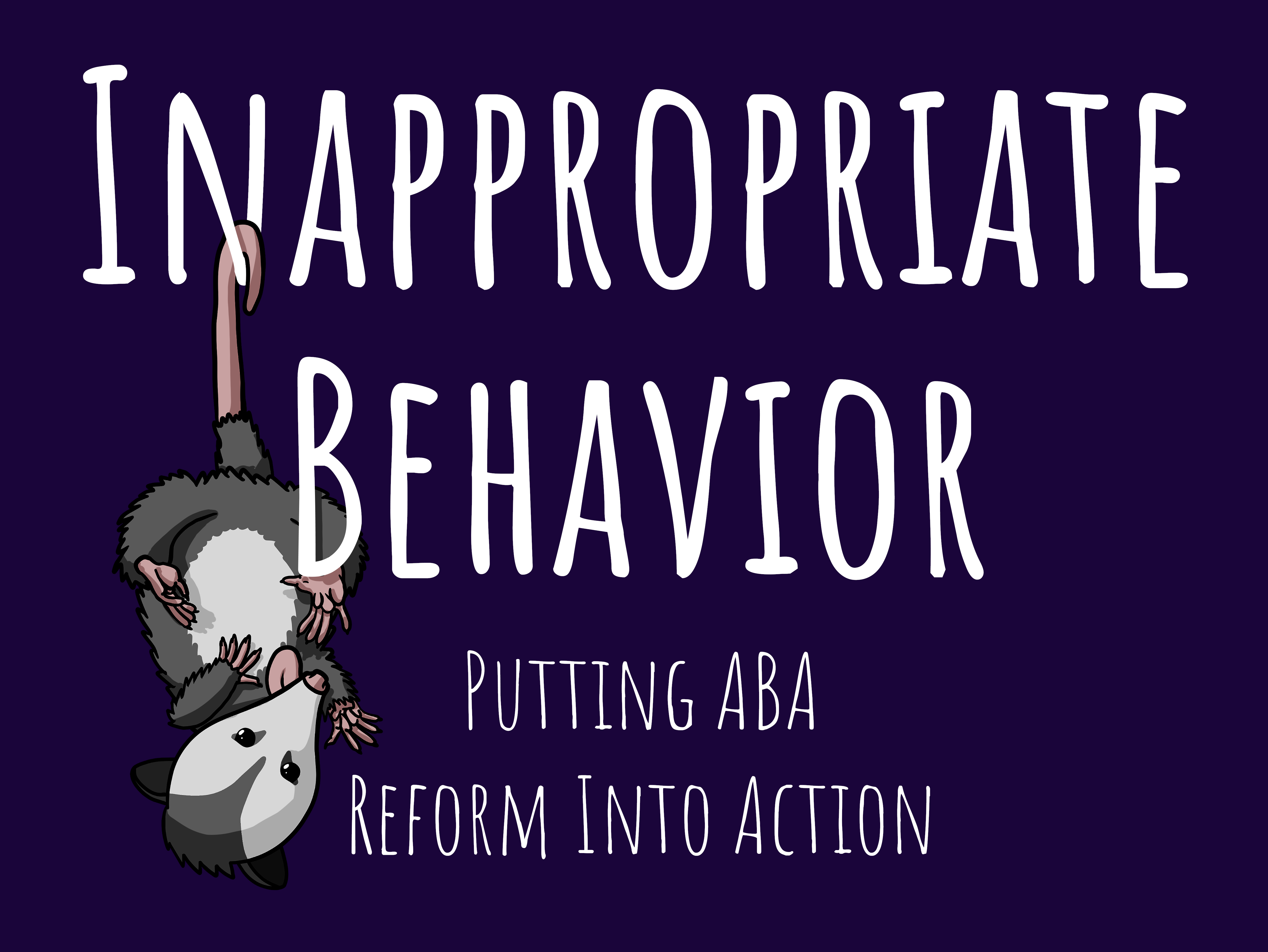I recently did a brief talk for the other BCBAs at my clinic about ableism in the field of ABA. My goal was to introduce them to the neurodiversity movement, the criticisms of ABA, and how we can do better. I had an autistic friend graciously volunteer her time to help and offer her perspective and experiences. I had hoped it would be an introduction that would lead to further research on their end. Turns out, the whole thing just left them feeling like they’d just attended an anti-ABA rally and potentially questioning their career choices.
Needless to say, it did not go over well.
Apparently when you’ve been in it for a while, you forget how hard it is to hear some of these things I remember when I first started and yeah, I was pissed. It was a journey. I’ve learned and grown a lot, and I’ve changed the way I practice. Even now, I still have a hard time seeing the talk as anti-ABA, but the fact that I’m grossly outnumbered in that perspective says a lot.
What’s my actual stance on it?
For the sake of discussion, I’m going to refer to ABA as a method of autism treatment. I’m well aware that ABA is not just an autism therapy — most of ABA’s critics are also aware of that. That’s not the point of the conversation.
ABA applies the science of how people learn and behave to help others reduce dangerous behaviors and gain new skills. That’s a very positive thing. I’ve seen how individualized programs, implemented with systematic teaching approaches, with a 1:1 therapist, has resulted in massive positive change. There’s a reason kids often learn better with tutors or when homeschooled as opposed to in a classroom setting with a one-size-fits-all-(we-hope) approach. Individualized and 1:1 is always going to be better. (See: What is ABA and Can it Be Reformed?)
Training in ABA also helps you break down the world into components. You notice things in the environment that others miss. You notice behaviors or small steps in skills that can be the keys to huge gains. When zooming out of the “autism therapy” perspective, ABA can be used to solve a variety of problems, from social justice and environmental protection, to city planning and to business optimization. Think of how much better our education system could be if learning was viewed as a science and the system itself was run by those who understood it rather than politicians and bureaucrats (a rant for another day) .
Autistics deserve more than “fuck around and find out.”
Changing behavior comes with power, and we know that using it inappropriately can cause harm. That is why we feel so much rage when we see people claim to be utilizing ABA without the proper credentials and training. That’s why we have the BACB and a certification in the first place. However, even with that training, ABA is far from perfect. It’s a relatively new practice. As with any new system, you have kinks to work out, and we have a long history of nasty kinks we’ve already worked out. It’s naive to think that we’re just done now.
ABA has also being used overwhelmingly with a population that is even less understood. Within my lifetime, the world’s general understanding of autism has gone from the kid from Mercury Rising to Sheldon from Big Bang Theory, and neither are accurate nor particularly positive. New research comes out all the time, and there still is no clear biological marker that indicates autism. Simply put: We have no idea what autism is. All of the diagnostic criteria is behavioral and prone to subjective interpretation. Add poorly understood neurological development to new science and you have a perfectly cultivated environment for problems.
Autistics deserve more than “fuck around and find out,” but unfortunately, that is what we’ve ended up with. Despite our best efforts and intentions, we currently live in a world that does not produce autistic people without trauma, and that is something we cannot ignore. ABA can– and does– do good. I still firmly believe that, or I wouldn’t still be in it. But we have to come together to do better. You cannot call yourself an ethical BCBA, and then rage against the community you claim to support just because they’ve confronted you about where you’ve gone wrong.
Why am I still in ABA? Because I want to help people with disabilities through science, and I want to help push positive change from the inside.
We need to swallow our egos and do better.

